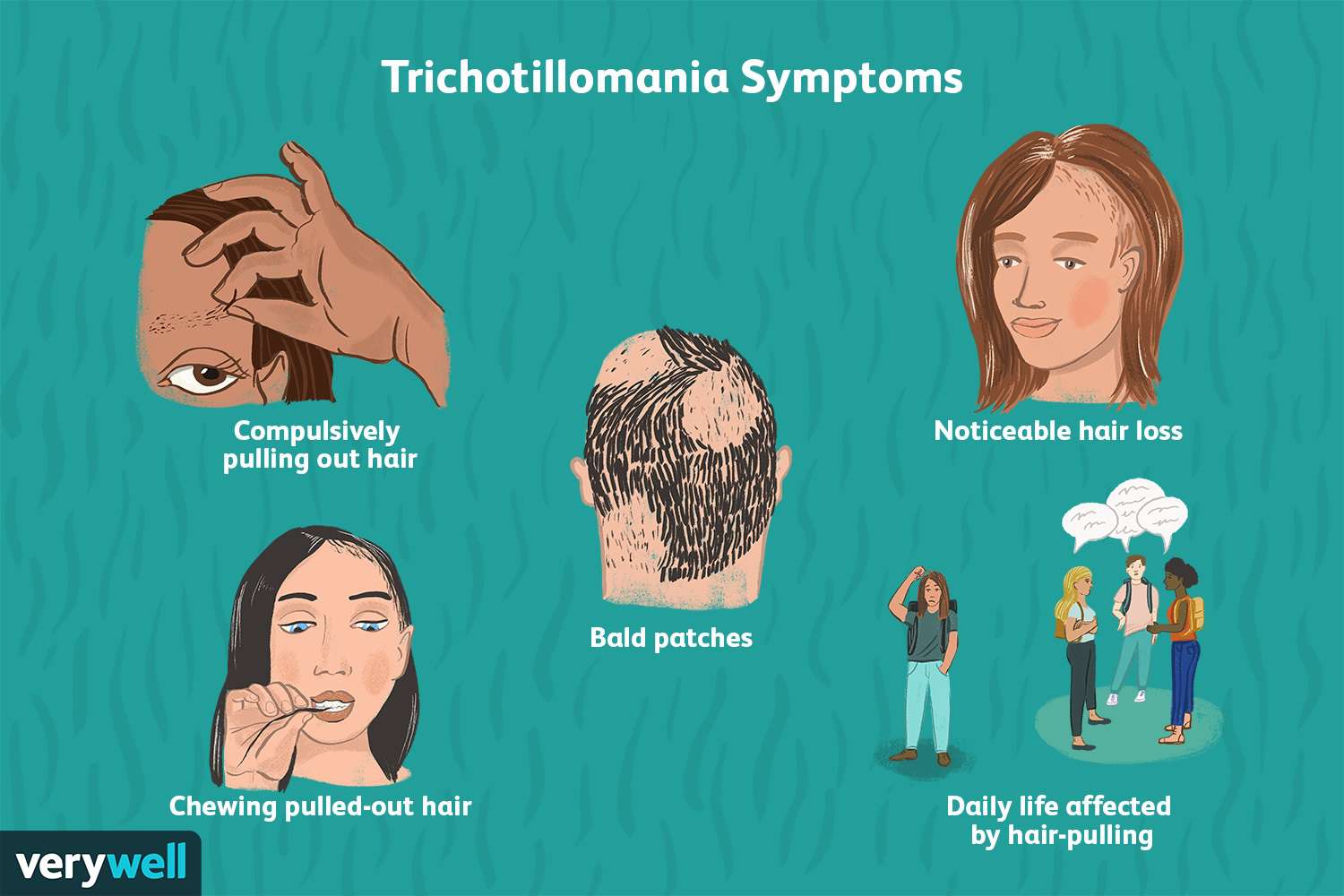Trichotillomania is a mental health condition characterized by the compulsive urge to pull out one’s hair. This behavior can lead to noticeable hair loss, often on the scalp, eyebrows, eyelashes, or other areas of the body.
Symptoms of Trichotillomania
People with trichotillomania often experience:
- An Urge to Pull Hair: An irresistible urge to pull out hair from the scalp, eyebrows, eyelashes, or other body areas.
- Increased Tension Before Pulling: A sense of tension or anxiety before pulling hair.
- Pleasure or Relief After Pulling: A temporary sense of satisfaction or relief after pulling hair.
- Difficulty Resisting the Urge: Inability to control the urge to pull hair.
- Hair Loss: Visible hair loss in areas where hair is pulled.
Causes of Trichotillomania
The exact causes of trichotillomania are not fully understood, but a combination of genetic, psychological, and environmental factors may contribute to its development. Some potential causes include:
- Genetic Factors: A family history of trichotillomania or other mental health conditions may increase the risk.
- Neurobiological Factors: Imbalances in neurotransmitters, such as serotonin and dopamine, may play a role.
- Psychological Factors: Stress, anxiety, and obsessive-compulsive tendencies may contribute to the development of trichotillomania.
- Environmental Factors: Adverse childhood experiences, such as trauma or abuse, may increase the risk.
Treatment of Trichotillomania
Treatment for trichotillomania often involves a combination of therapies and medications:
- Cognitive-Behavioral Therapy (CBT): CBT can help individuals identify and challenge negative thoughts and behaviors related to hair pulling.
- Habit Reversal Training (HRT): HRT involves identifying triggers for hair pulling, developing awareness of the urge to pull, and practicing alternative behaviors.
- Medication: Antidepressants and antipsychotic medications may be used to address underlying mental health conditions and reduce the urge to pull hair.
With appropriate treatment, many individuals with trichotillomania can significantly reduce their hair-pulling behaviors and improve their quality of life.



